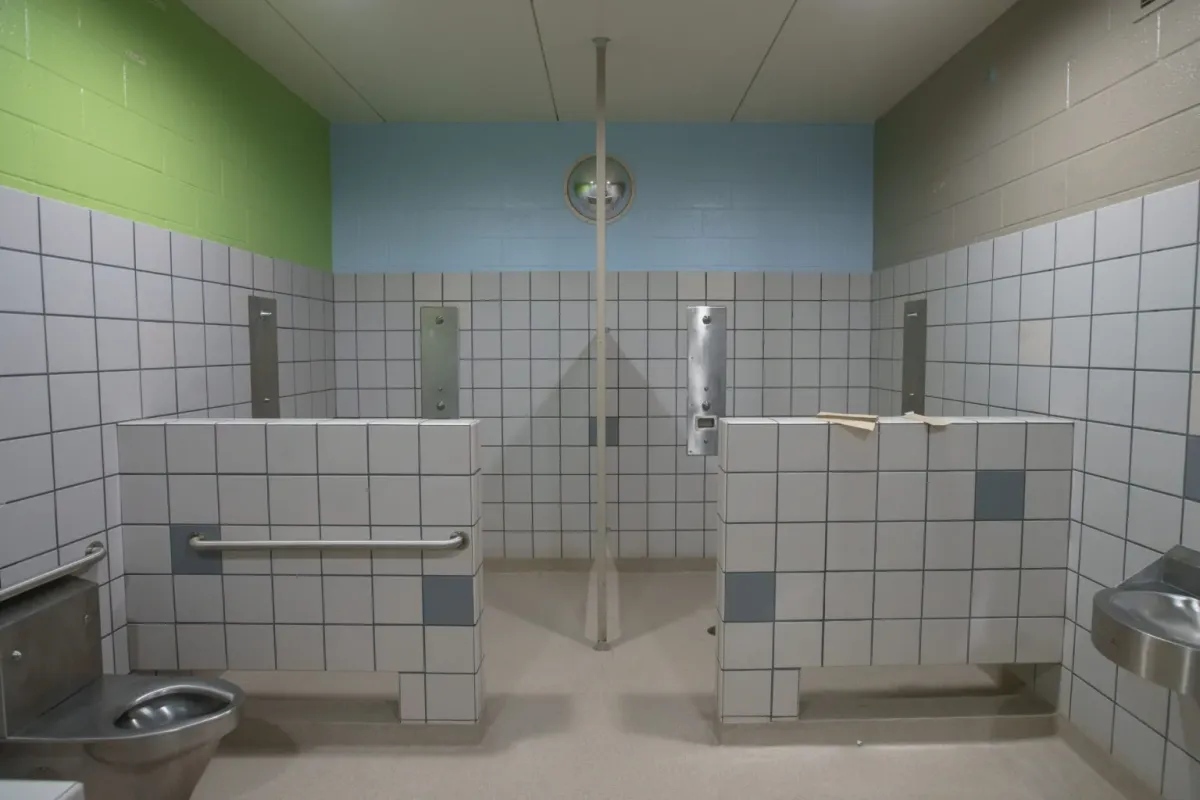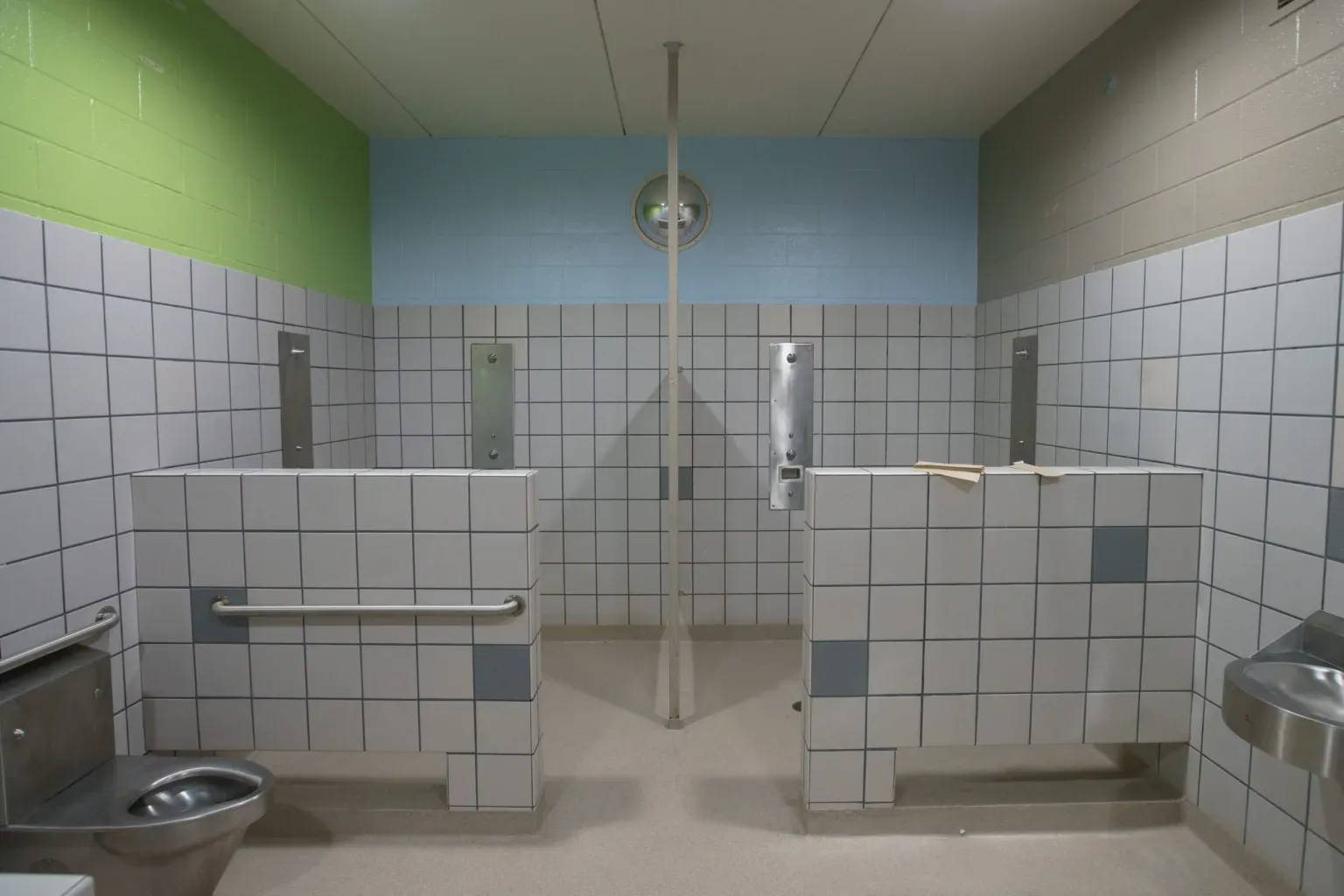Christmas behind bars
One year ago, all eyes focused on living conditions at New Mexico’s largest juvenile jail. We haven’t looked away.

Joshua Bowling, Searchlight New Mexico
This story was originally published by Searchlight New Mexico.
As the sun was setting on Christmas Day 2023, I got a tip that something was going on inside the Albuquerque-area juvenile detention center. I was watching “It’s A Wonderful Life” when my phone buzzed with the first indication that things had gone horribly wrong at the Bernalillo County Youth Services Center, where several dozen kids, ages 12 to 17, were detained while awaiting trial for charges ranging from simple misdemeanors to murder.
“My son’s calling me,” the mother of one such teenager said in a text. “I’m scared they’re going to retaliate and hurt my son when they get into the unit. He is barricaded in the unit right now.” Indeed, as police reports, interviews and surveillance footage later confirmed, about a dozen teenagers had barricaded themselves inside a single cell block and told authorities they wouldn’t come out until they received a hot meal.
In the coming hours, conflicting information hit airwaves and social media feeds. Police were calling the situation a riot, but parents and juvenile justice advocates said the kids were protesting the lack of food on Christmas Day. I spent the next few weeks reviewing surveillance footage and conducting interviews to get to the bottom of what really happened, but I knew from experience that not being fed on time was just one of many problems kids were facing.

As Searchlight New Mexico’s criminal justice reporter, I had spent the majority of 2023 investigating conditions inside the severely understaffed facility, where strip searches were mandatory and waits to use a toilet lasted for hours. Across the nation, strip-searching minors has become increasingly controversial and widely discouraged. During a tour in early 2023, officials showed me the costly equipment they had obtained to forego the practice altogether — high-tech body-scanners and hand-swabbing machines that can detect weapons, drug residue and other contraband in a matter of seconds. But those machines had broken down and went without repair for months at a time, bringing back the practice of strip-searching a child every time they came back from a court date or a visit with their parents.
My first story, published in July 2023, prompted the state Children, Youth and Families Department to conduct a surprise inspection of the facility. When auditors published their findings, their report confirmed many of my discoveries and found something even more startling: video surveillance cameras had been placed in the children’s showers.
In the year and a half since I first set foot inside New Mexico’s largest juvenile jail, I’ve kept a close eye on operations there. And in the year since its Christmas Day trouble caught the attention of people across the state, a lot has changed — for one thing, the county hired a new director to run the place — and a lot has stayed the same. One is that kids are still being strip-searched.
The Bernalillo County District Attorney has spent much of the past year with a laser focus on juvenile crime and has proposed amending juvenile crime laws. Despite that, the facility’s population has not changed significantly. When I first reported on the jail in 2023, there were 52 inmates, about one-third of whom were charged with murder. Today there are 53 inmates; 40 percent of them face murder charges.
A year ago, strip searches were common. Today, they still are.
In a four-month stretch earlier this year, facility staff conducted more than 600 strip searches, according to Vanessa Hulliger, founder of Stronger Together, Never Alone, a support and advocacy group for mothers whose children are behind bars. Hulliger has become a vocal advocate for detained children in the last year; Bernalillo County invited her to sit on an interview panel during the hiring process for a new juvenile detention center director, and county officials regularly brief her on the facility’s operations. From those 600-plus strip searches, she says, jail staff found five pieces of contraband: three pencils, one pen and one letter containing personal information about one of the detained children.
County officials have refused to take down the video cameras mounted in showers, Hulliger says, but they have covered the lenses and use them only to record audio.
“We have … been all over this country in over 50 jurisdictions, and no one has said they allow cameras in the showers or bathrooms of a juvenile facility,” Hulliger says. Officials across the nation “were appalled that there were cameras. Nowhere has ever heard of naked children being recorded in the showers.”
Since bringing on a new director, facility leaders have revived much of the programming that suffered in recent years. Searchlight had previously reported that children at the jail rarely got to go outside or use its rope course for exercise. In recent months, kids have experienced a dramatic increase in outdoor time, on-site school attendance and even equine therapy, Hulliger says. Laundry services have also been outsourced, she says, so that children’s clothing and linens no longer reek of urine and mildew.
While seemingly everyone turned their attention to problems at the juvenile detention center on Second Street a year ago, Searchlight had been already investigating it for nearly a year.
In a piece that took months to report and edit, Searchlight revealed the full breadth and scope of the facility’s problems for the first time. The second story stemmed directly from that investigation. Jailed kids heard that a journalist was looking into their living conditions, and three sent letters containing vivid descriptions of their experiences inside the jail. Both pieces provide a detailed, warts-and-all look at what the juvenile justice system is like for the New Mexican kids who live it every day.
Joshua Bowling is the criminal justice reporter for Searchlight New Mexico.



